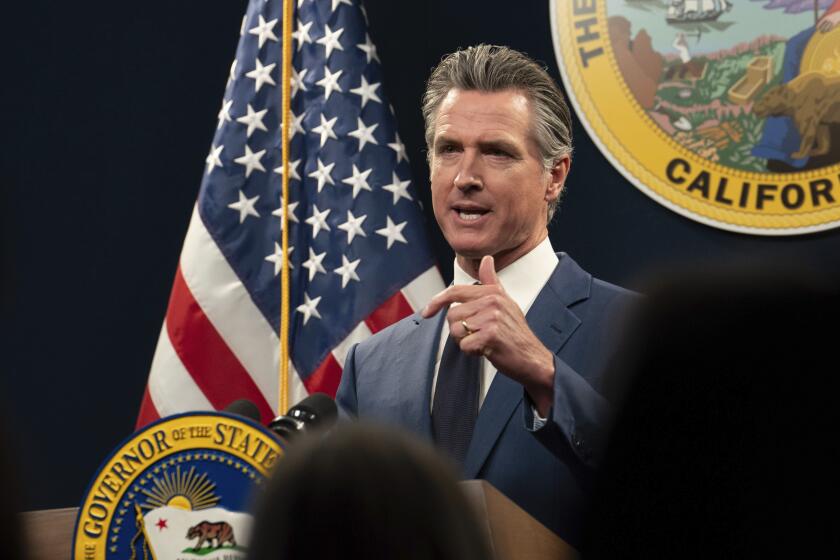Seal the deal on trade
THE DEMOCRATIC PARTY retook Congress in part on campaign rhetoric that at times veered alarmingly close to hostility toward global trade. Yet in their brief tenure, Democrats have already signaled flexibility on extending one of the most important tools for reducing international barriers: presidential “fast track” authority to negotiate trade deals. The Bush administration should seize this opening and lock down fast track before the next election cycle begins.
The presidential authority is scheduled to expire in June. It is basically a prerequisite for the big trade deals now under discussion -- including bilateral pacts with Malaysia and South Korea and a global agreement to lower farm supports -- because without fast track, each deal would be subject to amendment or filibuster by Congress.
Democrats seem open to extending fast track, on two key conditions: expanding assistance programs for Americans who lose their jobs because of globalization, and requiring trade partners to adopt international labor standards. Neither makes much sense, but neither issue should be an insurmountable hurdle to a compromise.
Federal assistance programs for dislodged workers provide a share of health insurance costs, subsidize job retraining and even pay out cash. Leading Democrats have proposed legislation to triple the size and cost of these programs, which this year amounted to $837 million.
Such programs have been repeatedly discredited by auditors. Only 11% of workers eligible for subsidized health insurance take it, and that’s because they can’t afford the 35% of the premium they have to cover themselves. That could be remedied by raising the government portion, but that still wouldn’t address the unfairness issue. In a dynamic economy, people lose their jobs every day because of changes in consumer tastes, technology, automation or government regulation. Why single out the comparative few who lose their jobs because of foreign competition?
The other Democratic priority, forcing trading partners to sign onto the principles for worker rights created by the Geneva-based International Labor Organization, runs the risk of creating a slippery slope -- how about extending the U.S. minimum wage? -- but is manageable. The ILO bans child labor and workplace discrimination and gives workers the right to organize; these are laudable goals, though it’s not clear that they belong in a trade agreement.
Still, the U.S. has a trade deal with Jordan that includes ILO guarantees, and other agreements have included some labor standards. The danger is that the Democratic leadership might yet move the goalposts in terms of what it requires to support free trade. But if the political cost of open markets -- the best anti-poverty program ever invented -- is just a cosmetic bilateral labor requirement or two and a couple of billion dollars’ worth of government waste, it’s worth paying.
More to Read
Get the L.A. Times Politics newsletter
Deeply reported insights into legislation, politics and policy from Sacramento, Washington and beyond. In your inbox three times per week.
You may occasionally receive promotional content from the Los Angeles Times.






